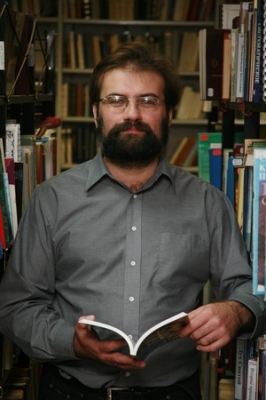The recent words of Fr. Dimitry Smirnov, in which he compared the Bolsheviks’ granting of permission for abortion with Hitler’s actions, provoked considerable outrage. This is understandable and was expected.
Indeed, the question of abortion sharply divides Church and society. While by some parameters our fellow citizens are social conservatives, and in no hurry to join the progressive countries in jumping into the abyss of Sodom, at the level of statistics and mass psychology Russia presents a very bleak picture with regards to abortion.
Some people, who are technically ready to declare themselves Orthodox, are not prepared to accept the Church’s position on this issue. The declaration of this position itself, and any attempt put into decreasing the scale of this evil, are met with hostility.
Christians have to speak about this issue in a roundabout way: they point out the gloomy prospects for a nation that destroys its future at such a rate that one wonders who is going to feed today’s thirty-year-olds when they are retired. Will we ask the Africans to come? But why would the Africans need you?
But this is not the main reason why Christians oppose abortion. It is simply difficult and very painful to explain the main reason to people. Therefore, we should probably begin with something else: with forgiveness.
The Gospel is the good news of the forgiveness of sins. At Golgotha, Christ redeemed us from our sins; we can be completely forgiven and purified, and our relationships with God can now be restored, as soon as we wish to accept this forgiveness.
Many well-known activists for life are former abortionists. They are accepted and completely forgiven by God, and the Holy Scriptures promise this many times to anyone who repents and believes: “I have blotted out, as a thick cloud, thy transgressions, and, as a cloud, thy sins: return unto Me; for I have redeemed thee” (Isaiah 44:22).
The Church witnesses to forgiveness and salvation, not condemnation. Evil is evil, sin is sin, and crime is crime – but not because the Church has decided it is so. It is so because this is reality, which we are inclined to deny, but which does not therefore disappear.
We all know that it is wrong to take the life of an innocent human being who is neither an armed aggressor nor a criminal. Many people are against the death penalty in general, but everyone has always agreed that one cannot execute a guiltless person.
We know, and it is an acknowledged scientific fact, that a baby in a mother’s womb is a living creature (and not a part of a woman’s body, like an aching tooth). We know that this creature is a human being, for what else could it be? According to the obvious and almost tautological definition of Aristotle: “A human being is a living creature that belongs to the human race.” It is exactly this human being that is deliberately destroyed during abortion.
We know this, and cannot help but know this, not from the Church at all – if the Church were silent about this, it would change nothing in reality. In any case, it is a great evil to deprive an innocent human being of life.
Supporters of abortion make use of two lines of argument: either they deny that a baby in the womb is a human being, or they deny its innocence, considering the baby to be an aggressor or unwanted tenant, whom the owner has the right to “evict.”
I fear, however, that it is not the Church at all, but simple common sense that indicates that a baby in a mother’s womb is, first, a human being and, second, not an aggressor or criminal who faces a fair penalty.
Fr. Dimitry’s comparison of abortion with Hitler’s actions, therefore, is far from an emotional exaggeration or an attempt to catch people’s attention. It is the most accurate possible analogy.
Hitler thought it possible and right to exterminate a multitude of innocent people because it was convenient for him and consistent with his plans. Moreover, he killed people who were certainly innocent and did not even take up arms against him, and often did not even have the possibility to do so. For this purpose, he simply declared them to be non-human, arbitrarily excluding them from the human race.
Pro-abortion ideology does the same thing: it arbitrarily excludes a portion of human beings from the number of humans, proclaiming that they are no longer under the protection of morals or the law, so they can be destroyed as soon as seems convenient.
Someone might decide that, inasmuch as no one will avenge or punish them on behalf of these children, they will not have to answer for their blood; the children will not even gather for demonstrations or vote at elections. Therefore they can be neglected.
The Church believes in God’s just judgement. Moreover, it knows that it is unnecessary to believe in this judgement in order to have to face it one day. On Judgement Day, no one will be able to deny that they have known that one cannot deprive an innocent human being of life. This is a great evil that brings a curse on those who commit it, on those who support it, and on the society that considers it normal.
Yes, it is very painful for people to realize they have been complicit in murder. Here the fault of a mother may be less than that of others: the father and relatives of the baby who literally forced the mother to commit this horrible deed, doctors who insistently recommended it to her, and agitators who explained that it was her right may be far more guilty…
The Apostle Paul writes that those who approve of sin are guiltier than those who commit it (c.f., Romans 1:32). Indeed, someone might commit sin under the pressure of unbearable circumstances – but to approve of this sin freely and unforcedly is a great evil.
But the Church speaks about this not in order to judge and suppress, but in order to offer healing for those great wounds that we (both as individuals and as society at large), have inflicted upon ourselves. “Christ hath redeemed us from the curse of the law, being made a curse for us: for it is written, Cursed is every one that hangeth on a tree” (Galatians 3:13). Christ died an accursed death in order to redeem us from the curse that was brought about by our sins.
As soon as we recognize the evil we have committed, participated in, and approved of, we shall be forgiven. As the Holy Apostle John writes: “If we confess our sins, He is faithful and just to forgive us our sins, and to cleanse us from all unrighteousness” (1John 1:9).
Tranlsated from the Russian.



















